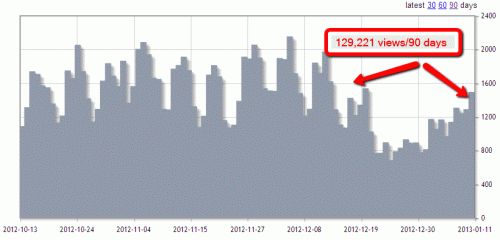( To comment, kindly go here)
One of the objections to the markup of the Wiki ID article is that this is tilting at a windmill.
I disagree.
It should already be plain that the Wiki article is representative of a standard set of talking points used to polarise the unwary against design theory, and to lead them to think there is nothing serious to see here, move along. But, as has been shown step by step over the past several days, this is based on a willfully constructed false narrative.
One, that brings Wikipedia’s vaunted commitment to a neutral point of view and to objectivity into serious question.
However, there is a second good reason to putting on record a markup of the article, as taking time to examine and correct it publicly provides a point of reference on what is wrong with the Wikipedia article, and with the on-the-ground (as opposed to on paper) policies of Wikipedia that allow such a hatchet job to stand for years. Also, it speaks to the wider issue of what is going wrong with our intellectual and media culture that allows such misrepresentations to stand, to spread and even seeks to build on them.
A third issue needs to be borne in mind: influence.
Let us look at some usage statistics I just collected from Wikipedia:

As you can see in the past 90 days almost 130,000 people went to Wikipedia to read about ID, many of them, doubtless, being unduly influenced or even seriously misled by that hatchet job.
That’s an average of over 1,400 views per day.
Just for record sake, it is important to provide an alternative for those 1,400 people.
Per day.
Of course, I have long recommended the New World Encyclopedia ID article, which is far better balanced and is not a hatchet job.
(Of course, the mocking dismissal is that that article could just as well have been written by Discovery Institute. Guess what, if that is so, and the difference on accuracy and balance is so much in favour of NWE/DI, then that tells us a lot about who is really credible. Surprise — NOT — it is not: Wikipedia and its anonymous contributors, moderators and editors or policy administrators, Judge John E Jones, ACLU, NCSE, Ms Barbara Forrest and the Louisiana Humanists, etc.)
So, now, where do we go from here?
Can we successfully change Wikipedia at this time?
I doubt it, the testimonies of the overwhelming wave of ideologues and biased moderation are too consistent.
But, we can hold their feet to the fire, and over time bring home the point that this is not good enough not by a long shot.
Let us remind them, from their own declared policy:
Editing from a neutral point of view (NPOV) means representing fairly, proportionately, and as far as possible without bias, all significant views that have been published by reliable sources. All Wikipedia articles and other encyclopedic content must be written from a neutral point of view. NPOV is a fundamental principle of Wikipedia and of other Wikimedia projects. This policy is nonnegotiable and all editors and articles must follow it . . . .
Achieving what the Wikipedia community understands as neutrality means carefully and critically analyzing a variety of reliable sources and then attempting to convey to the reader the information contained in them fairly, proportionately, and as far as possible without bias. Wikipedia aims to describe disputes, but not engage in them. Editors, while naturally having their own points of view, should strive in good faith to provide complete information, and not to promote one particular point of view over another. As such, the neutral point of view does not mean exclusion of certain points of view, but including all notable and verifiable points of view . . .
Q: Wikipedia’s contributors, moderators and editors of the ID article, can you in good conscience in the face of evident facts, say that you have even come close to this standard in your ID article?
A: On fair and well-merited comment, not by a long, long, looooong shot.
Shame on you!
Please, please, please, do better than that.
A lot better than that.
Or, we will have little choice but to see your encyclopedia as fatally compromised and agenda-driven on topics like this.
With serious onward implications for the whole system’s integrity and trustworthiness, as it plainly cannot or will not police itself properly in light of evident facts and its own declared policy.
Frankly, the tolerance of something like this speaks volumes on the state of academia, the education profession, our media culture and our wider popular culture.
Also, in the meanwhile, we can seek out a fairer overview and stand up for it, exposing bias and the sort of saddening intellectual misconduct that we have had to wade through in recent days. We can be confident that in the end the truth will come out, even if it is unpopular and derided today.
That, too, is a lesson of history. END